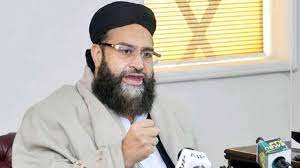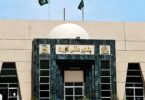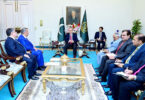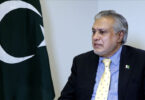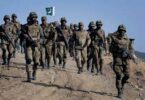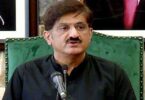F.P. Report
ISLAMABAD: Pakistan Ulema Council Chairman Hafiz Muhammad Tahir Mahmood Ashrafi on Friday urged the Afghan interim government to prioritize addressing legitimate concerns raised by Pakistan instead of engaging in a blame game.
In a conversation with Arab and national media representatives, he underscored the importance of maintaining stability and peace in the region.
Ashrafi stated that Pakistan’s intentions were clear: it had no desire for instability or lawlessness in Afghanistan, and it expected the same commitment from its Afghan counterparts. He emphasized the historic ties between Pakistan and Afghanistan, rooted in social, cultural, and religious bonds, making their peace and prosperity interdependent.
Regarding the repatriation of illegal Afghan immigrants from Pakistan, Ashrafi encouraged the Afghan government to engage in open dialogue with Pakistan rather than resorting to hostile rhetoric.
He acknowledged Pakistan’s four-decade history of hosting Afghan refugees and reassured that this support would continue. However, he stressed that respecting the laws of both countries was crucial for harmonious coexistence. Ashrafi also highlighted the issue of Afghan extremists potentially finding accomplices in recent blasts in Pakistan.
He urged both nations to resolve this matter amicably and collaboratively to ensure regional security and stability.
He further said there was no acceptance of recognizing Israel as Kashmir and Palestine were declared common issues for the Muslim Ummah, with a special focus on the ongoing oppression faced by the people of Kashmir.
He also highlighted the need for international awareness of the plight of Kashmiris, emphasizing that Kashmir remained incarcerated. He urged the international community to take note of these concerns.
Furthermore, Ashrafi who is also the President of the International Interfaith Council, reaffirmed the rights of minorities in Pakistan, emphasizing that their protection was the responsibility of the state.
Strongly denouncing the recent terrorist incidents that occurred on the 12th of Rabi-ul-Awwal, he labeled them as acts of barbarism that were in direct opposition to Islam and humanity.
He noted a recent surge in such attacks over the past two months emphasizing that those who perpetrated such violence had no affiliation with true Islam and were clearly acting against its teachings.
He mentioned that Muslim World League Secretary-General Sheikh Dr. Muhammad bin Abdulkarim Al-Issa had also condemned these incidents of death and destruction in the strongest terms.
Ashrafi, expressing, solidarity against terrorism and extremism, emphasized that terrorism was a cancer that must be eradicated.
He pointed out that India’s involvement in terrorism, both in Canada and globally, should be recognized by the international community. He urged the global fraternity to take notice of this concerning development. (APP)

